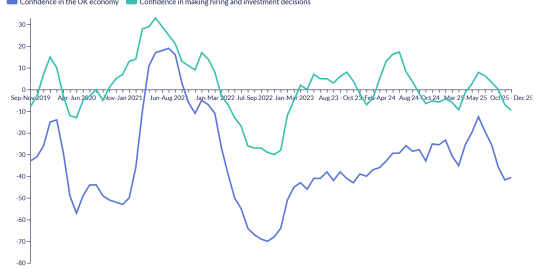In particular, Susan Anderson, CBI Director of Education & Skills policy, applauded studentsí achievements in maths, where 57.2% achieved a grade C or above, and in English, where 62.7% attained this level.
Ms Anderson said: The class of 2009 deserves praise for its hard work in achieving these results. Fierce competition for jobs, and even college places, means getting good grades is more important than ever.
This will be a tough time for everyone leaving school and looking for a job, but even more worrying for those students who fail to get good grades.
Typically, over half of students do not achieve a C or above in both maths and English GCSEs, and this year over 50,000 students in English and nearly 100,000 in maths only achieved an F or below.
At the same time, the proportion of young people not in employment, education or training (NEET) has risen to over one in ten 16 to 18-year-olds, and there are 959,000 16 to 24-year olds who are ëNEETí.
Ms Anderson added: It is important that all young people and parents know the value employers place on school leavers being able to demonstrate a good grasp of the basics. Functional literacy and numeracy skills are not just a ënice to haveí.
Ofsted's recent report saying teaching on the new functional skills courses is of varied quality and needs more attention is worrying. These skills should be taught as well as tested, with teachers given the support and training they need to do so.
CBI research reveals that over half of employers (51%) are unhappy with school-leaversí basic ability to read, write and do simple maths, and its latest survey on education and skills shows that two-fifths (40%) of employers are concerned about basic literacy and numeracy skills among their workforce.
The CBI is calling for more young people to study maths beyond GCSE, when 85% of students give up the subject. By contrast, two thirds of students in France continue studying maths after 16.
This means employers want to see more students taking maths A-level, and more doing the ëUse of Mathematicsí AS-level, designed to complement subjects such as social sciences or business studies. Others will need support on functional numeracy to reach the basic level expected in the workplace.
Ms Anderson said: Britain needs more people to leave education capable of using numbers confidently, with a good grasp of statistics and able to solve problems. These skills make a real difference to peopleís long-term career prospects.
In the future, the demand for people who have qualifications in science, technology, engineering and maths (STEM) skills is expected to grow - it is estimated that up to 2 million extra science-related jobs will need to be filled by 2014.
There was a welcome rise in the number of students taking all three sciences as separate GCSEs - initial figures suggest an increase of around 20%. The CBI has called for the brightest students to be automatically opted into doing Triple Science, considered the best preparation for studying science at A-level and beyond.
The government ëentitlesí all students who do well at the age of 14 to do Triple Science, but last year fewer than half of comprehensive schools offered it. Making this entitlement a reality will require more specialist science teachers, more money invested in equipment and labs and schools making sufficient space in the timetable.
CBI praises students on this year's GCSE Results

The CBI congratulated students and their teachers on their GCSE results today




